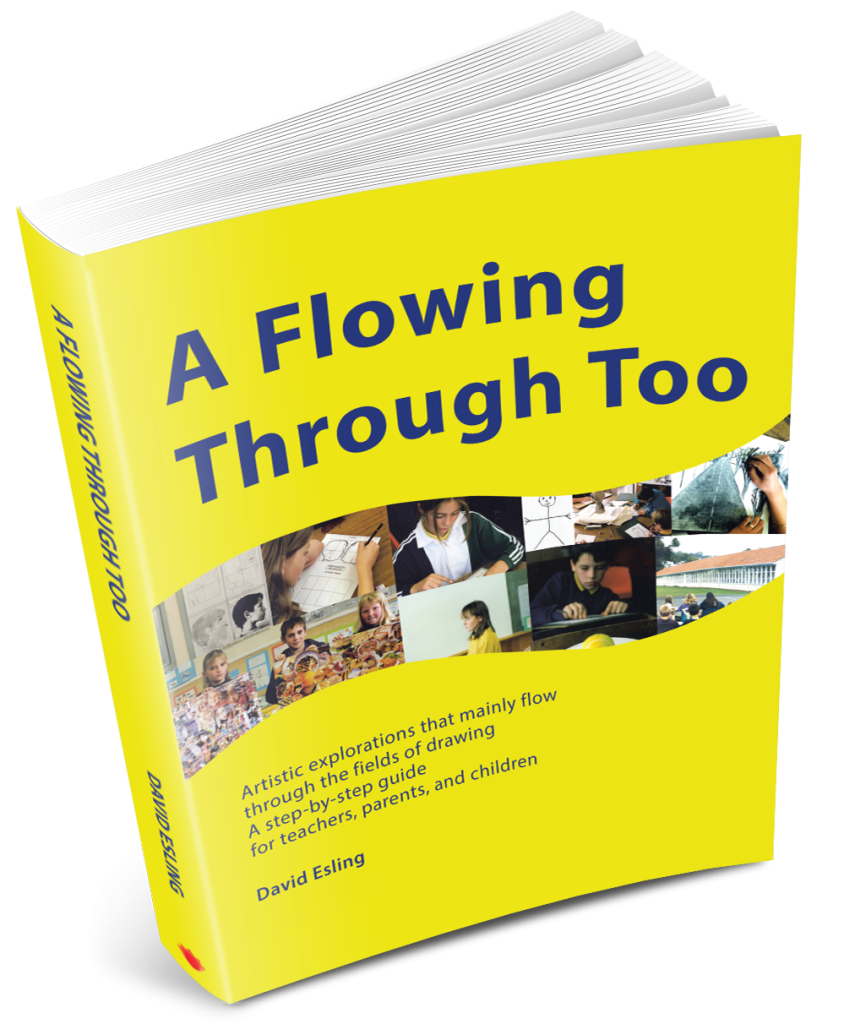About the Books
A Flowing Through — A series of artistic explorations that flow from simple starting points, pass by milestones and finish with polished achievements

This book is a narrative of a teacher’s artistic approaches for teaching and learning in a primary school within a socially disadvantaged suburb of Hobart towards the end of his career.
The inspirational stories of his explorations with the children by his side will captivate the hearts and minds of student teachers, teachers, teachers of teachers, and all those who love to work alongside children.
The text of each explorative journey is accompanied by the teacher’s photographs and include relevant and interesting conversations between the participants. Together, they bring the stories back to life and invite the reader to sit alongside and participate in the explorations.
The children’s art was often outstanding, but the journey, rather than the destination, carried the greater significance. David used Art as a means of reaching out to children, many of whom had no wish to attend school.
Their shared successes brought about dramatic rise in the children’s self-esteem, a more positive attitude towards learning, and improved their relationships with each other. School became an exciting place as the teacher and the children together played the active roles of teachers and learners. They were learning how to learn.
A FLOWING THROUGH TOO — Artistic explorations that mainly flowthrough the fields of drawingA step-by-step guide for teachers, parents, and children

This second book by David Esling is a worthy companion for its predecessor A Flowing Through. We read again the narrative of a teacher’s creative approaches for teaching and learning within a primary school in a socially disadvantaged suburb of Hobart, Tasmania, towards the end of his career.
A Flowing Through Too discusses a series of artistic explorations that flow from simple staring points, pass by milestones and finish with polished achievements. The inspirational stories of his explorations with the children by his side will captivate the hearts and minds of student teachers, teachers, teachers of teachers and all those who love to work alongside children. The text of each explorative journey is accompanied by the teacher’s photographs and include relevant and interesting conversations between the participants. Together, they bring the stories back to life and invite the reader to sit alongside and participate in the explorations.
The children’s art, mainly drawing, was often outstanding, but the journey rather than the destination carried the greater significance. Their emerging skills as observers and the developing expertise in their interpretations of what they could see were remarkable. However, David used art as a means of reaching out to children, many of whom had no wish to attend school. Their shared successes brought about a dramatic rise in the children’s self-esteem, a more positive attitude towards learning, and improving the relationships with each other. School became an exciting place as the teacher and the children together played the active roles of teachers and learners. They were learning how to learn.